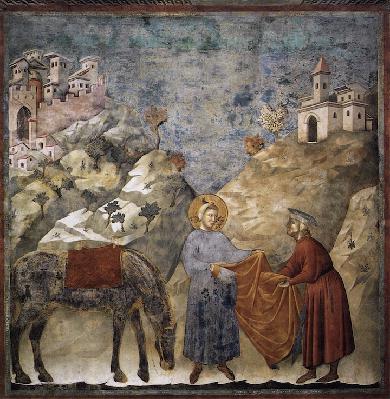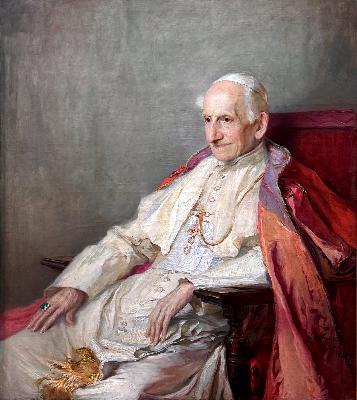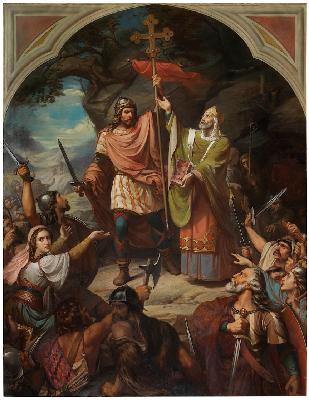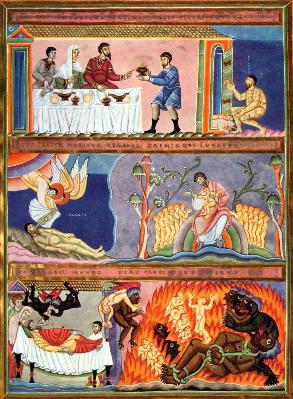Yes, Christopher Columbus
Update: 2025-10-13
Description
By Robert Royal
Today is Columbus Day, or (among the alternatively oriented) Native Peoples' Day, both displaced in any case, as even major Catholic feasts now are, to a different date, so that people will have long weekends, or not be inconvenienced, or something. In any event, it's a day now redefined in terms that make it unclear what, if anything, we are celebrating, or deploring, in this booming, buzzing confusion that we still (kind of) think of as the twenty-first Christian century.
So let us seek a little clarity.
For most of subsequent history following his voyages, Columbus' reputation was strong and settled. It began to change, in the nineteenth century, in the United States, of all places. Washington Irving got the idea that Columbus must have been a Protestant and a Progressive - he opposed the council of learned theologians, you see, who told him (rightly) that the distance from Spain to China was greater than he was saying. But in an expanding and confident America, El Almirante became, in Irving's imagination, the precursor of American initiative and vision.
Medieval Europe, another Columbus myth notwithstanding, knew the world was a ball (see Dante), not flat - what the historian Jeffrey Burton Russell rightly mocked as "the pizza theory." Columbus didn't "prove the earth was round" and no one thought so until ignorance of pre-modern times became widespread.
The 19th-century American progressives, however, had still other plans for the Genoese Catholic sailor. Andrew Dickson White, a founder and president of Cornell University, enlisted him in the Darwinian cause - for reasons similar to Irving's, as a maverick who broke with religious obscurantism to "follow the science."
Other appropriations and mis-appropriations followed.
The Knights of Columbus, mostly Irish, around the same time, saw the explorer as a model Catholic American. And the growing number of Italian immigrants - well, just look at Columbus Circle in Central Park.
In recent decades, of course, all that has become the case for the prosecution. A significant swath of American elites has chosen to repudiate its own history, ironically based on cherry-picked Christian principles that Columbus helped bring to the Americas.
He's now also often charged with bringing all the evils that have allegedly plagued the Americas since 1492 - slavery, genocide, racism, inequality, patriarchy, rape, torture, war, environmental degradation, disease, etc.
Contrary voices have asked (e.g., the present writer): if we're going to attribute all these evils to that man, doesn't he also deserve credit for the many good things that have also followed on these shores?
Besides, he didn't have to bring those bad things here because they already existed among the various native peoples also being "remembered" today. Few ever really look at native cultures and practices, which also included colonialism, imperialism, territorial conquest, a warrior ethos, human sacrifice, and - dare one say to our LGBT-ified elites - overwhelmingly, binary views of human sexuality.
Prior to the Great Columbus Reversal, in 1892, Pope Leo XIII praised Columbus in Quarto abeunte saeculo: "For the exploit is in itself the highest and grandest which any age has ever seen accomplished by man; and he who achieved it, for the greatness of mind and heart, can be compared to but few in the history of humanity." Leo added: he brought Christianity to "a mighty multitude, cloaked in miserable darkness, given over to evil rites, and the superstitious worship of vain gods."
Amidst all these vagaries, the man himself has largely been lost. The Dominican missionary Bartolomé de las Casas, the well-known - almost fanatical - "defender of the Indians," noted the "sweetness and benignity" of the admiral's character. And even while criticizing some things that he did, remarks, "Truly I would not dare blame the admiral's intentions, for I knew him well and I know his intentions were good." Las Casas attributed C...
Today is Columbus Day, or (among the alternatively oriented) Native Peoples' Day, both displaced in any case, as even major Catholic feasts now are, to a different date, so that people will have long weekends, or not be inconvenienced, or something. In any event, it's a day now redefined in terms that make it unclear what, if anything, we are celebrating, or deploring, in this booming, buzzing confusion that we still (kind of) think of as the twenty-first Christian century.
So let us seek a little clarity.
For most of subsequent history following his voyages, Columbus' reputation was strong and settled. It began to change, in the nineteenth century, in the United States, of all places. Washington Irving got the idea that Columbus must have been a Protestant and a Progressive - he opposed the council of learned theologians, you see, who told him (rightly) that the distance from Spain to China was greater than he was saying. But in an expanding and confident America, El Almirante became, in Irving's imagination, the precursor of American initiative and vision.
Medieval Europe, another Columbus myth notwithstanding, knew the world was a ball (see Dante), not flat - what the historian Jeffrey Burton Russell rightly mocked as "the pizza theory." Columbus didn't "prove the earth was round" and no one thought so until ignorance of pre-modern times became widespread.
The 19th-century American progressives, however, had still other plans for the Genoese Catholic sailor. Andrew Dickson White, a founder and president of Cornell University, enlisted him in the Darwinian cause - for reasons similar to Irving's, as a maverick who broke with religious obscurantism to "follow the science."
Other appropriations and mis-appropriations followed.
The Knights of Columbus, mostly Irish, around the same time, saw the explorer as a model Catholic American. And the growing number of Italian immigrants - well, just look at Columbus Circle in Central Park.
In recent decades, of course, all that has become the case for the prosecution. A significant swath of American elites has chosen to repudiate its own history, ironically based on cherry-picked Christian principles that Columbus helped bring to the Americas.
He's now also often charged with bringing all the evils that have allegedly plagued the Americas since 1492 - slavery, genocide, racism, inequality, patriarchy, rape, torture, war, environmental degradation, disease, etc.
Contrary voices have asked (e.g., the present writer): if we're going to attribute all these evils to that man, doesn't he also deserve credit for the many good things that have also followed on these shores?
Besides, he didn't have to bring those bad things here because they already existed among the various native peoples also being "remembered" today. Few ever really look at native cultures and practices, which also included colonialism, imperialism, territorial conquest, a warrior ethos, human sacrifice, and - dare one say to our LGBT-ified elites - overwhelmingly, binary views of human sexuality.
Prior to the Great Columbus Reversal, in 1892, Pope Leo XIII praised Columbus in Quarto abeunte saeculo: "For the exploit is in itself the highest and grandest which any age has ever seen accomplished by man; and he who achieved it, for the greatness of mind and heart, can be compared to but few in the history of humanity." Leo added: he brought Christianity to "a mighty multitude, cloaked in miserable darkness, given over to evil rites, and the superstitious worship of vain gods."
Amidst all these vagaries, the man himself has largely been lost. The Dominican missionary Bartolomé de las Casas, the well-known - almost fanatical - "defender of the Indians," noted the "sweetness and benignity" of the admiral's character. And even while criticizing some things that he did, remarks, "Truly I would not dare blame the admiral's intentions, for I knew him well and I know his intentions were good." Las Casas attributed C...
Comments
In Channel
























